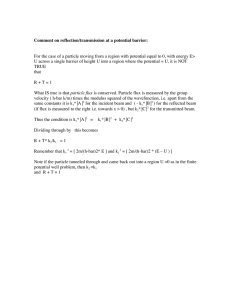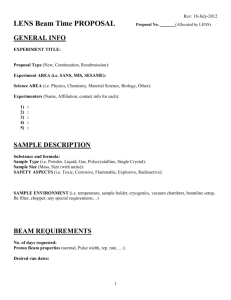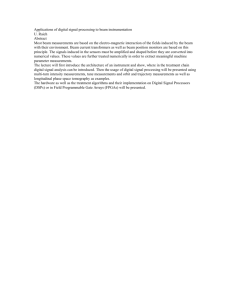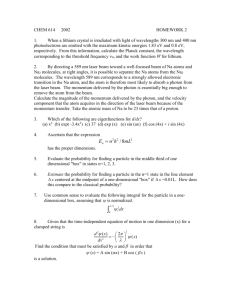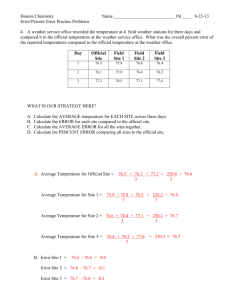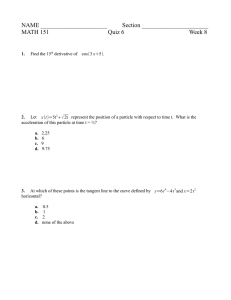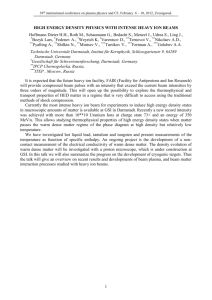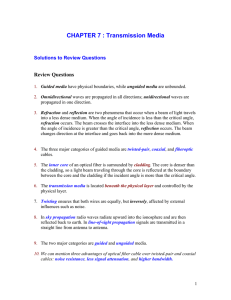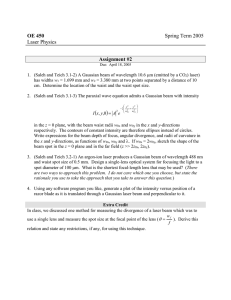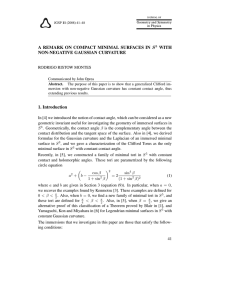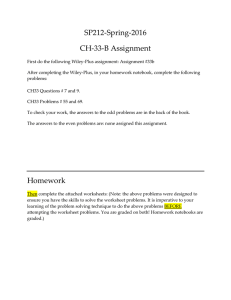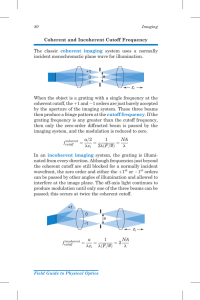Paper 20.6 Phase Doppler Technique
advertisement
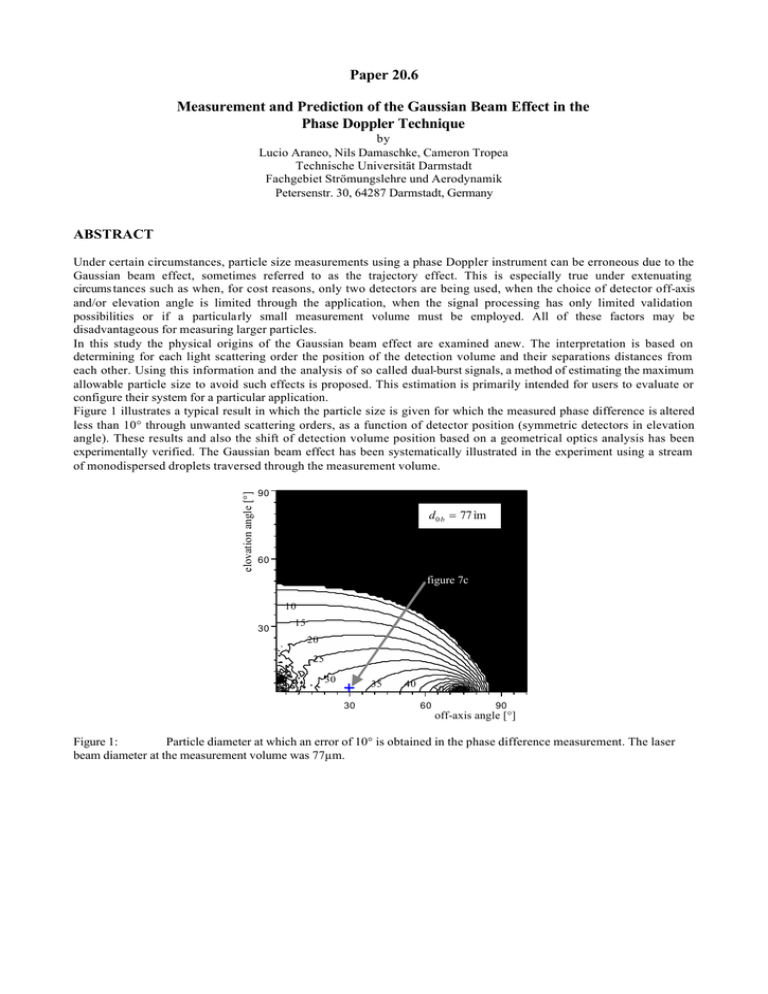
Paper 20.6 Measurement and Prediction of the Gaussian Beam Effect in the Phase Doppler Technique by Lucio Araneo, Nils Damaschke, Cameron Tropea Technische Universität Darmstadt Fachgebiet Strömungslehre und Aerodynamik Petersenstr. 30, 64287 Darmstadt, Germany ABSTRACT elovation angle [°] Under certain circumstances, particle size measurements using a phase Doppler instrument can be erroneous due to the Gaussian beam effect, sometimes referred to as the trajectory effect. This is especially true under extenuating circums tances such as when, for cost reasons, only two detectors are being used, when the choice of detector off-axis and/or elevation angle is limited through the application, when the signal processing has only limited validation possibilities or if a particularly small measurement volume must be employed. All of these factors may be disadvantageous for measuring larger particles. In this study the physical origins of the Gaussian beam effect are examined anew. The interpretation is based on determining for each light scattering order the position of the detection volume and their separations distances from each other. Using this information and the analysis of so called dual-burst signals, a method of estimating the maximum allowable particle size to avoid such effects is proposed. This estimation is primarily intended for users to evaluate or configure their system for a particular application. Figure 1 illustrates a typical result in which the particle size is given for which the measured phase difference is altered less than 10° through unwanted scattering orders, as a function of detector position (symmetric detectors in elevation angle). These results and also the shift of detection volume position based on a geometrical optics analysis has been experimentally verified. The Gaussian beam effect has been systematically illustrated in the experiment using a stream of monodispersed droplets traversed through the measurement volume. 90 d 0 b = 77 ìm 60 figure 7c 10 30 15 20 25 30 35 30 40 50 60 90 off-axis angle [°] Figure 1: Particle diameter at which an error of 10° is obtained in the phase difference measurement. The laser beam diameter at the measurement volume was 77µm.
